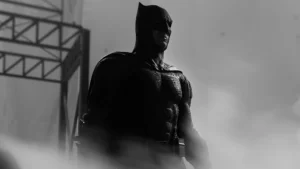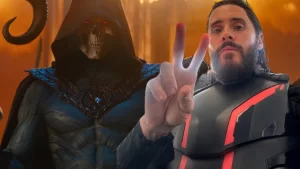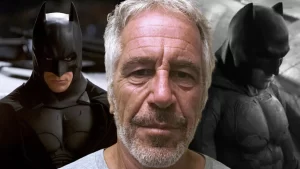The Year of the Dragon
A Film Review of The Girl with the Dragon Tattoo
By: Lawrence Napoli
As we enter the new year of the Dragon, this film will still be running strong in theatres in 2012, and I cannot forward a more immediate recommendation to my readers than to check out The Girl with the Dragon Tattoo at your earliest convenience. This film, despite being an adaptation of an adaptation from an original novel by Stieg Larsson, has imprints of David Fincher all over the place. This is a particularly good thing seeing how Fincher (for those of you who may not know) happens to make kick-ass films: Se7en (1995), The Game (1997), Fight Club (1999), Zodiac (2007) and The Social Network (2010) to name a few. In a year that was fairly void of gritty dramas featuring shocking imagery and a thought provoking plot, Dragon Tattoo offers up a nice, adult, change of pace. I’m not entirely sure that this film lives up to “THE feel-bad movie of the Holidays” moniker, but it sure isn’t filled with lollypops and Wonka bars. This film is a crime drama that makes several references to graphic violence against women, so I’d recommend leaving the kids at home with the sitter for this one. Still, this film has some sense of modesty as it tends to cut away at the most intense moments, so I wouldn’t qualify this as amongst my top ten graphically violent or shocking films.
Although I will never use the word “tasteful” to describe the visual reproduction of rape, this film doesn’t apologize for the harsh truth of the real world and evil people that abuse the varying degrees of power they hold over others. The manner in which the director, David Fincher, depicts violence is to hammer home a theme that Americans in particular ought to be quite familiar with by now, namely: people with money and power can do whatever they want and are simply not subject to the same set of rules as the “have-nots.” The privileged and their abuse of power victimize both of the main characters in this film prior to them engaging in the main plot arc, and this fact is central to the brutal mystery that needs to be solved. People that worry about paying for food, rent and school for either themselves or their families can’t appreciate this stark departure from normal society if they are shown images of CEO’s engaging in industrial espionage, but nobody can deny the literal imagery of violence. It is unfortunate that we do not have more effective ways to make meaningful social commentary without violence, but nothing sends a message like an axe through the skull, at least not on film anyway.
That brings us back to The Girl with the Dragon Tattoo which is a story that isn’t exactly something you haven’t seen before. As a matter of fact, it’s quite a standard mix of suspense and investigation that just happens to be shot very, very well. The marketing for this film would have you buy into some added element of taboo that is just too curious to pass up. The fact of the matter is that this is not entirely the case. Nazis, rape, over privileged rich people and media agendas all have strong footholds in the American film library, and these conventions all happen to play a role in Dragon Tattoo. The structure of the story is also something that may bewilder the average movie-goer as it is neither prototypically linear nor non-linear. Despite all that, screenwriter Steven Zaillian crafts an alternative take on the crime drama that is easy enough to follow with a little attentiveness (and the caffeinated beverage of your choice). That’s not to say that Zaillian’s adaptation is a snoozer, but suffers from two significant drawbacks: 1) details of the investigation via dialogue or close-ups are not spelled out for the audience and 2) action scenes are extremely sparse. Such is the nature with dialogue-driven-dramas, but these pacing debilitations are tempered by scenes that feature the one interesting character in this fiction: Lisbeth Salander, the girl with the dragon tattoo.
This character is clearly identified as the unpredictable type, and half of her intrigue is generated by the anticipation of what she will do next. As much as I like this character and absolutely loved the performance of said character, there’s too much of a drop off when the story shifts back to the perspective of the male lead: Mikael Blomkvist – the blandest investigative journalist ever conceived by the imagination of human beings. Perhaps this contrast can be attributed to the significant degree of role reversal in traditional sexual stereotypes as depicted historically in film. This film wins as many points with feminists as a film like G.I. Jane did. Seeing women schlep around like they have 12 inch Johnsons is about as interesting as it sounds – which is to say – not. Lisbeth is not exactly “butch,” but there are a few moments in this film where she behaves in a shamelessly male fashion, which caused me to wince somewhat because subscribing to a stereotype conflicts with her unpredictability. Regardless, I found enough of this character and her interaction with the story to be compelling, but those who don’t love Lisbeth as a character may find the rest of the film a complete wash.
When the action is minimal and the effects are few and far between, even well written dialogue is nothing without inspired performances. Let’s just say that then, men not named Christopher Plummer don’t exactly pull their weight in The Girl with the Dragon Tattoo. Stellan Skarsgard is solid in his role as Martin Vanger, but if one is familiar with his filmography, one notices a simple remix of his past performances. Who’s the more foolish: the fool or the fool who casts the same actor in the same roles? I am convinced that Daniel Craig doesn’t like me personally because I honestly have nothing against the man, yet I continue to be frustrated by the utter irrelevance of his performances in all his recent film work. He must have something personal against me. He produced such a respectable performance in Defiance (2008) that I cannot compare anything else he’s done since as more than “going through the motions.” His performance as Mikael continues that unfortunate trend as his featured scenes are mere stop gaps for the audience while waiting for Lisbeth to come back. Thankfully, Mr. Christopher Plummer lends some much needed intelligence, sophistication and charm in his small role as Henrik Vanger, the patriarch of the Vanger family dead set on righting a family scandal that lies at the center of the plot. As his character plays a sort of victim, the role he plays disallows him from being more proactive in the story, but what’s worse is how his character disappears for the entire second act. Thus, the audience is not privy to the full Plummer experience, but the mysterious manner in which he portrays his character is very compelling, albeit brief.
Let’s not deny the fact that The Girl with the Dragon Tattoo is all about Rooney Mara and how she will be a force to be reckoned with for the foreseeable future in Hollywood as top tier talent in hopes that her future projects will bring even more substance to the sexy. Obviously, she is a beautiful woman, but her physical attraction is anti-typically silicon free and that is a welcome sight to see, but still not entirely “normal body type” as there doesn’t seem to be an ounce of fat on her – I guess nobody’s perfect. That being said, Rooney is called upon to discard her clothing a few times, which has less to do with Hollywood’s shameless obsession with female nudity (believe it or not) and more to do with developing Lisbeth as a tormented individual who’s had a rough upbringing requiring less than admirable life choices to survive. Getting by in the urban wasteland in Europe is no more glamorous than anywhere else, so Lisbeth must be tough as nails, a little liberal with “the law” and be callous to the rest of the world. Therein lays the most powerful aspect of Ms. Mara’s performance: the deadpan stoicism, especially when her character shows hints of change. More often than not, Lisbeth as a character only fluctuates between rage and what appears to be indifference, but as her relationship with Mikael evolves, so too does her demeanor in very subtle, but noticeable ways. You won’t see Rooney Mara crack a genuine smile during this film, but her dedication to maintaining the hard-edge image of disenfranchised youth is layered with sincerity and makes this film worth watching. Rooney Mara is a powder keg of “Don’t F*ck With Me!” and I am pleased to see an example of girl power on the screen that is committed to strength and individuality.
The Girl with the Dragon Tattoo is a very imperfect crime drama that suffers from stagnant pacing and some less than adequate performances. For a film franchise that was meant to be billed as the definition of raw aggression and blunt sexuality, David Fincher seems to have preemptively neutered this potential beast of entertainment. As intense as some moments in this film are, the dial certainly needs to be “set to 11” for the subsequent sequels, and doing so would certainly add some much needed action. Whether or not the audience ultimately likes this film hinges squarely on how much they love Rooney Mara’s performance. As a result, this will not be a film for everyone because this is “America baby,” and when it comes to brains getting splattered or explosions ripping people apart, we’re ok with it, but when it comes to sex and sexuality, people write nasty letters to their local congressman or woman. This is a movie that’s going to require an open and attentive mind to appreciate so be prepared. If for any other reason, this film is worth seeing because it’s a Hollywood attempt to do something different and different is always good.
For more with Lawrence On “The Girl With The Dragon Tattoo” head on over and check out his Podcast, with a very special guest, his sister Kristin.







